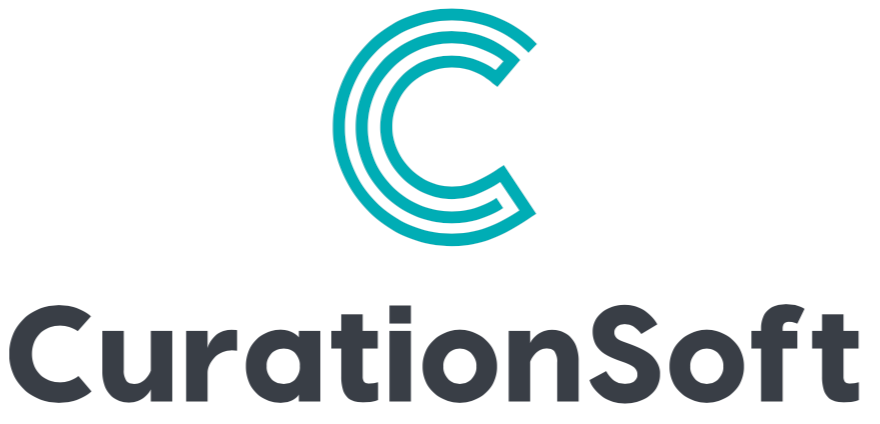How to Achieve Topical Authority For Improved SEO Rankings
Have you heard of the word Semantic SEO? If not, then let me elaborate. Semantic SEO is building in-depth quality content by covering a particular topic’s aspects. Doing this will help search engines easily crawl over your pages and understand your content better. Therefore, when a user searches for anything related to your topic, Google will prioritize your website first, knowing that it covers everything in detail and can answer the searcher’s questions better than anyone else.
Topical Authority is an effective Semantic SEO strategy and an essential part of content marketing; it helps to establish a website’s relevance and trustworthiness in the eyes of search engines. Building topical Authority allows you to gain trust from the users searching for specific information on a topic you specialize in.
But does topical Authority play a significant role in ranking your site?
Being a professional SEO Consultant for 15 years, I’ll be unbiased; your website cannot rank on the first SERP just by maintaining topical Authority as you need to focus on other SEO factors too, but it’s worth your time. However, suppose you want to rank your site for a particular topic, say a healthy lifestyle. In that case, you need to build topical Authority over health-related topics to show Google that you are an expert in this field. Hence, whenever any potential user searches for anything related to health, Google will directly display your site in the first SERP.

What Is Topical Authority?
Topical Authority measures how well your website content is written as an expert in a particular topic. It’s based on the number and quality of links pointing to your content from other websites and the amount of content you have published related to that topic.
For example, if you’re writing on SEO best practices, having links from authoritative sources like Moz or Search Engine Land and having multiple blog posts related to SEO will increase your topical authority score for the SEO topics.
The higher the number and quality of external links pointing at your website content, plus the more relevant content on a given subject – all contribute towards increasing your topical authority score for that particular subject. This makes it easier for search engines to recognize you as an expert in this field when people are searching for related information.
For example, if you want to rank your articles related to Shoes, then your website should cover all aspects of the shoe industry, such as Sneaker Vs. Shoes, Best Shoes For Men/Girls, Joggers Buying Guide, Best Joggers Brand In The World, etc. Having content for all the related keywords will show Google that you have expertise in the shoe industry and no other competitor can explain things better than you.
To Clarify, when I searched for “The Best Weather Tents For Extreme Weather Camping ”, Google should have displayed the top ECommerce Sites like Amazon, but the results showed other nonfamous sites; why?
Because these sites mainly focus on outdoor niches by publishing articles to cover all the aspects of outdoor-related topics such as:
Amazon doesn’t have expertise in outdoor products as it sells general stuff. Therefore, Google prioritized other sites.
Topical Authority Vs. Domain Authority Vs. Page Authority
Google uses all three authorities to understand how professional you are and how authentic your website is.
✧ Your website gains topical Authority through the relevance and expertise of the content and its On-Page SEO (keywords, titles, internal links, etc.). Every topic on your website has an authority score depending on how deeply you have covered it.
✧ Page Authority talks about individual pages; it’s the value search engines assign to a page depending on how potential it has to rank. The higher the value (ranging from 0 to 100), the more chances of ranking.
✧ Domain authority is attained through numerous high-quality backlinks and shows the Authority of your domain as a complete website.
Key Takeaway: Having Topical Authority means showing Google that you are an expert in a particular topic, let it be Content Writing or Running Advertisements.
Why Is Topical Authority Important?
Topical Authority was first introduced in 2011 when Google laid its layout for the search engine. Later, Google released the hummingbird update in 2013, declaring that it would use a different way to analyze content. Before this update, Google answered the searches through keywords, phrases, and backlinks, but after this update, it will then understand the content on a semantic level.
✓ Builds Trust With The Customers
Suppose you want to hire a marketing expert for your local business.
There are two agencies you have shortlisted:
The first agency quoted a price of $500/service but has yet to give details on how it will work, to what extent, and the procedure it will follow.
The second agency charges $700/service but has laid out a complete plan: how it will be doing complete keyword research, producing content, doing On-Page SEO and then technical SEO, etc. You are now thoroughly familiar with all their procedures and expertise; hence, you can trust them as the agency is experienced and professional.
Who would you prefer more?
Although the second agency charges more, how it entertains its customers helps them clear their confusion and provides a complete detailed guide as to how they will work is worth the increased price. You will choose the second one!
✓ Better Search Engine Rankings
Covering a specific topic in detail indicates that you are an expert in the subject matter, which is attractive to potential customers and readers. It also shows Google that your content is relevant and trustworthy, making it more likely to appear at the top of search engine results pages (SERPs).
■ According to a recent study, the first organic search result has more than a 25% of click-through-rate.
What Is E-A-T in Topical Authority?
After the hummingbird update, Google released the medic update in 2018, declaring that a site’s content should showcase E-A-T if it aims to rank higher in the SERPs. Hence, E-A-T became the central concept of Topical Authority which stands for expertise, Authority, and Trustworthiness.
Google’s General Guidelines also focus on EAT as a crucial ranking factor as it says, “High-quality pages have high-level expertise, authority, and trustworthiness.”
How to Build Topical Authority?
Topical Authority involves creating high-quality, relevant content that makes you an expert in a particular topic or industry. Here are the most effective ways to build topical Authority and ensure your content stands out from the competition.
1. Extensive Keyword Research
Keywords are the terms users type to search for any query. Before producing any content, you need to consider your industry and find the relevant terms people use to search for your products or services.
∆ Use Keyword Research Tools
There are many free and paid keyword research tools available on the internet. Here are my three favorite keyword research tools:
This is a free tool, all you need to do is type in your main keyword, and you’ll find all the related keywords.
In addition, Google Trends can also gauge the popularity of specific topics over time, so you know what kind of content will perform best at any given moment. By understanding trends within your industry or niche, you can adjust your strategy accordingly and ensure you’re consistently creating content that resonates with readers while helping organic boost traffic from SERPs too!
This tool is also highly free to use. Just go to its website and type the keyword. You’ll find all the question-based keywords related to your primary keyword. The amazing fact about this tool is that it gives you a main question-based keyword and provides other short keywords related to that.
∆ Social Media Sites
You can also use some social media sites to know what’s trending and join groups related to your industry to see what questions people have regarding your services or products. Here are the two most popular social sites to interact with readers:
∆ People Also Ask
If you want more keywords, try searching for your product or service on Google and check out the People Also Ask section to find more question-based keywords.
You can also use the Related Searches section.
∆ Ahrefs Keyword Explorer
Now what to do with competitors?
Use the Ahrefs content gap tool to uncover new keywords by entering your competitor’s links and your link and see which keywords your competitors are ranking for, and you are not.
2. Create Topic Clusters
Topic Clusters refer to multiple blogs or content pieces based on a single topic. To clarify, in a topic cluster, one topic is broken down into different subtopics, and separate pages are assigned for those divided topics to cover the information in detail. Once you have the list of keywords with you, here are the three steps to make topic clusters.
- Pillar Content
- Clusters
- Internal Links
Pillar Content
Decide the main keyword, the seed keyword, to create your main page content that will target other related keywords or subtopics.
Clusters
Then make small pages for other less-important keywords related to your pillar content and answer all the queries in detail to ensure everything is included.
Internal Links
Finally, create a web of Internal links in your pages and a flow of information to show expertise, making it easy for search engines to go through your text.
3. In-Depth Content
First, focus on creating quality content related to the topic you’re trying to become an expert in. This means researching topics thoroughly and writing comprehensive pieces offering readers valuable information. Make sure each piece is well-written and free of errors; this will help it stand out from other similar articles online.
➼ Adding Keywords
Additionally, include relevant keywords throughout your article so search engines can easily index it and direct more traffic towards it.
➼ Internal Links
According to Google Search Central, Google discovers new content through internal linking from a known page to a new one.
Adding internal Links will keep your audience engaged and let the search engines know that you have touched all the aspects of a topic.
4. Linking Authoritative Websites
Next, link back to authoritative websites related to your topic when possible; this will help boost your topical Authority score significantly since these sites have already established themselves as experts in their respective fields.
5. High-Quality Backlinking
To build up topically-relevant backlinks over time, it is essential to create high-quality content around specific topics that are both interesting and informative enough for other sites/blogs/influencers within those industries to share them with their audiences.
➤Link Exchange
If you don’t have access to these websites yet, try reaching out via social media or emailing them directly with a request for a link exchange agreement. They’ll often be happy to oblige if they think what you have written offers value for their audience too!
6. Promoting Your Work
Finally, promote your work across multiple channels, such as social media platforms like Twitter and Facebook, or through guest blogging opportunities on other blogs within your niche. This will increase visibility for both yourself and the website hosting the article, which could lead to more people discovering what you have written about the topic at hand.
By following these steps consistently over time, you should start seeing results soon enough – your topical authority score should rise steadily until eventually becoming one of the top authorities on whatever subject matter interests you most.
Key Takeaway: Building topical Authority involves creating high-quality content, researching topics thoroughly, and including relevant keywords. Additionally, link back to authoritative websites related to your topic when possible and promote your work across multiple channels, such as social media or guest blogging opportunities. Doing this consistently will help boost your topical authority score over time and establish you as an expert in a particular topic or industry.
Benefits of Having Topical Authority
High topical Authority can be beneficial for SEO purposes, as it can help increase organic search rankings and visibility for your website or content.
⭐ Generates Leads
Regarding conversions and sales, having a high topical authority score helps establish credibility with potential customers. If people see that you have expertise in the topic they’re researching; they’ll be more likely to trust what you say about products or services related to that topic. This increases their confidence in buying from you or using your services.
⭐ Increased Engagement On Social Media Platforms
People who recognize you as an expert in your field are more likely to share your posts on platforms such as Twitter and Facebook. They will further strengthen your customer base by commenting or liking them – this boosts the reach even further!
⭐ Meeting The Experts
Finally, having a solid topical authority presence can open up opportunities for collaboration with other experts in the same field. By connecting with influencers who have similar interests but different perspectives on topics related to yours, you can expand both of your audiences while learning new things along the way.
Having topical Authority can help you stay ahead of the competition and increase your search engine visibility, so measuring and understanding how well you’re doing in this area is essential.
How Can You Measure Topical Authority?
Topical Authority measures how well your website or content performs regarding its relevance to a particular topic, which can be used to improve rankings on search engine results pages (SERPs).
➤ Tools For Measuring Topical Authority
Several tools are available to measure topical Authority, such as Moz’s Domain Analysis Tool and Ahrefs’ Topic Explorer tool.
Moz’s Domain Analysis (DA) provides insight into the strength of a domain’s backlink profile and its overall ranking potential. This score is based on factors such as link quantity and quality, anchor text diversity, domain age, etc., all of which contribute to the DA score. A higher DA score indicates that a website has a better chance of appearing higher up in SERPs when relevant keywords are searched for.
Ahrefs’ Keyword Explorer tool helps you identify topics related to your niche with high topical authority scores. The tool uses natural language processing algorithms to analyze web pages and determine their relevance to specific topics. You can then use this data to create more targeted content that will rank better in SERPs when users search for those specific topics.
To improve topical authority scores, it is crucial to not only focus on keyword optimization but also ensure that each piece of content contains useful information about the subject matter being discussed. This way, readers can gain value from reading it rather than seeing it as another generic article about something they already know. Additionally, adding internal links between related pieces increases relevancy signals sent by search engines which further boosts rankings on SERP pages, resulting in more organic traffic coming through.
Having the right tools to measure your topical Authority can help you identify opportunities for improvement and track progress over time. With this knowledge, you can now focus on improving your topical authority score with the tips in the next section.
Tips & Secrets To Improve Topical Authority
Creating content that is related to the topic you are trying to become an expert in is key to improving your topical Authority.
✓ Content should be well-researched, informative, and engaging. It should provide readers with useful information and insights into the topic they are interested in.
✓ Additionally, it should be optimized for search engines by including relevant keywords throughout the text.
✓ Backlinks from authoritative websites related to your topic can also help improve your topical authority score. Look for sites that have a high domain authority and create relationships with them so you can get backlinks from their website or social media accounts. This will not only increase traffic to your site but also boost its credibility in Google’s eyes as a reliable source of information on the subject matter at hand.
✓ Using tools like Moz’s Domain Analysis and Ahrefs’ Keyword Explorer tool regularly can help monitor progress when attempting to build up topical authority scores over time. These tools measure different aspects of SEO performance, such as link-building efforts, keyword usage, page speed optimization, etc., which all contribute towards improving overall rankings within search engine results pages (SERPs).
✓ Finally, optimizing titles and meta descriptions for each page on your website is important when trying to build up topical authority scores too. Titles should include relevant keywords while still being concise enough, so they don’t appear spammy or irrelevant; meta descriptions should accurately describe what visitors will find on each page while using persuasive language that encourages people to click through from SERPs instead of just skimming past them without taking any action.
Key Takeaway: Create well-researched, informative, and engaging content. Look for sites with high domain authority and create relationships with them for backlinks. Use tools like Moz’s Domain Authority Score or Ahrefs’ Topic Explorer tool regularly to monitor progress. Lastly, optimize titles and meta descriptions for each page on your website.
FAQs Related To Topical Authority
Conclusion
In conclusion, getting topical Authority is an important step for SEO and content marketers to improve their search engine rankings. By understanding what it is, how to build it, its benefits, and the tools available for measuring topical Authority, you can make sure that your website has a strong topical authority score. Additionally, by following some of our tips on improving your topical Authority scores, such as optimizing titles and meta descriptions with relevant keywords or creating content related to specific topics or questions, you can further increase your chances of achieving higher rankings in SERPs.
Are you looking to get the topical Authority and improve your content marketing and SEO? Look no further than curationsoft.com! Our platform provides easy-to-use tools that help you identify, create, publish, measure, optimize and share content that will drive organic search engine traffic to your website. With our solutions tailored specifically for businesses of any size or industry sector – from small startups to large corporations – we can give you an edge in today’s competitive online landscape.






